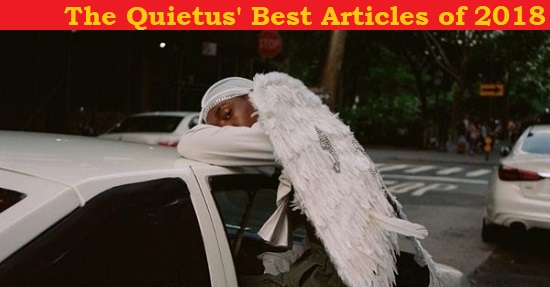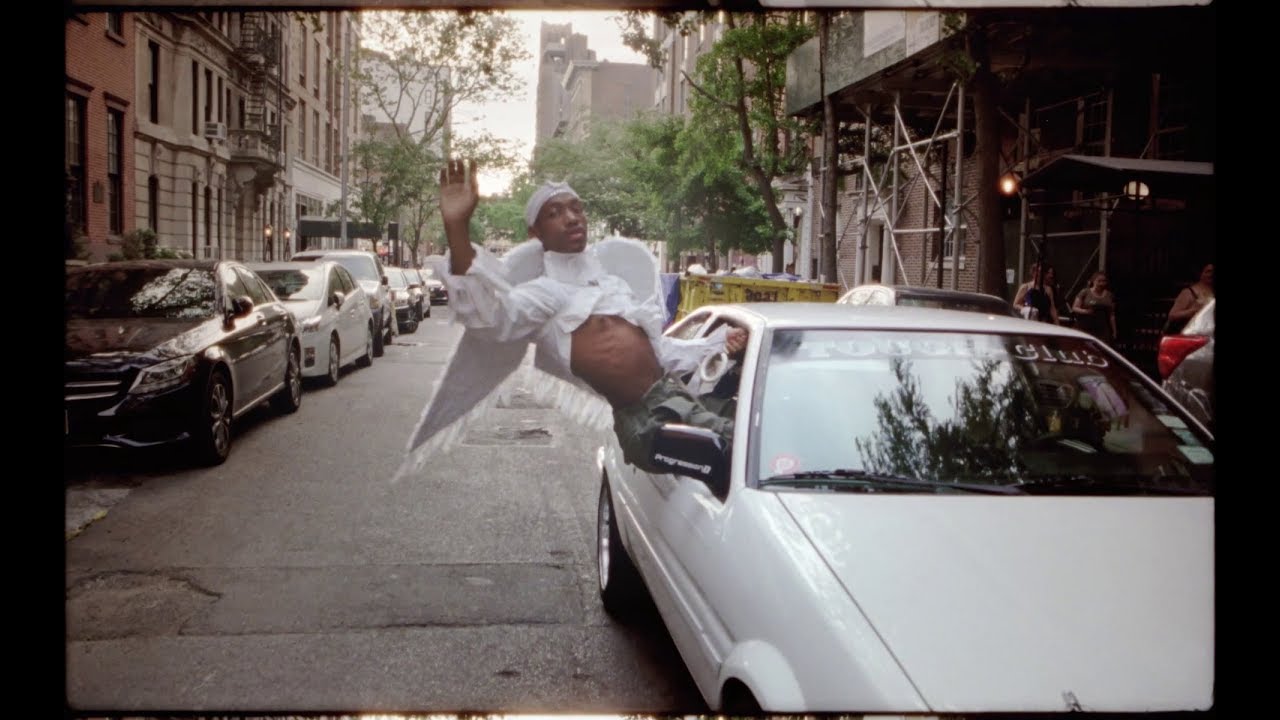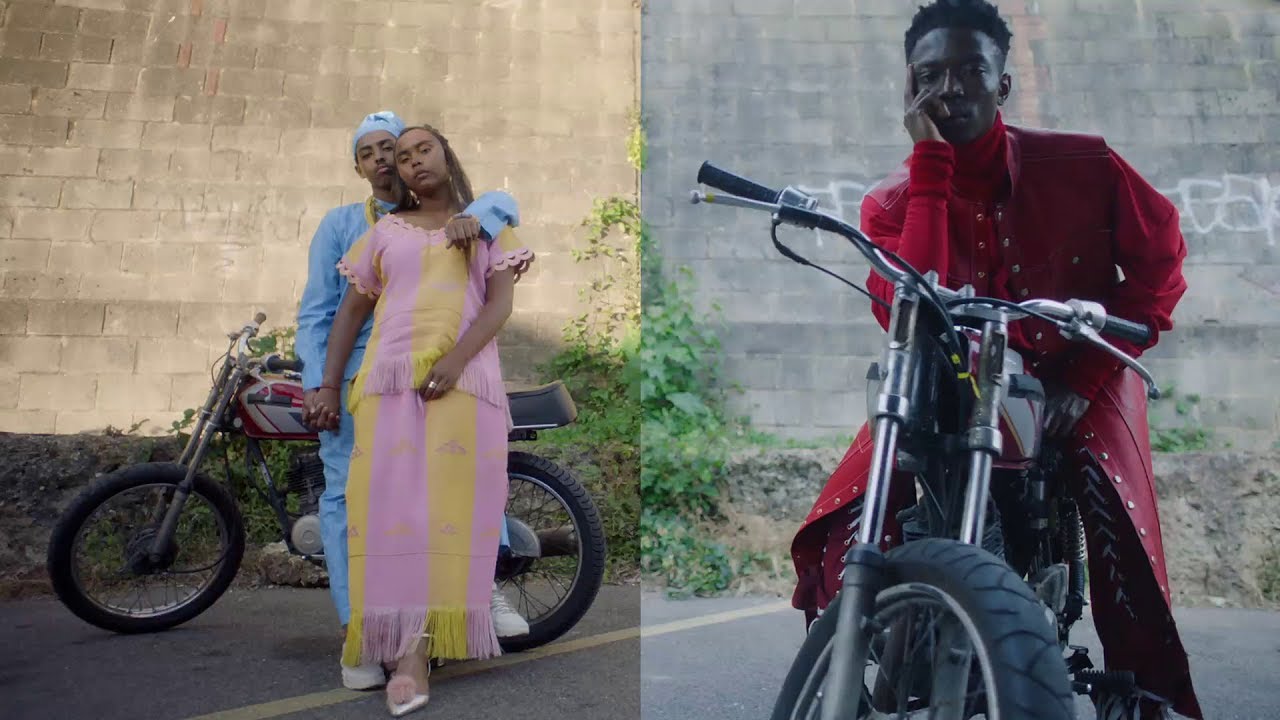I dreamt last night that I was making music with my friend Dev Hynes. But I’m not a musician, and I would be borderline deluded to call Dev Hynes a friend. He used to come to the parties my house threw when we were students, and I liked him. That was when he was in Test Icicles, the punk nu-rave band who made the banger ‘Circle Square Triangle’, which was followed by his stint as Lightspeed Champion. As Blood Orange, Hynes’ work is full of musical references, moods, soundbites and emotive memories. The first album, Coastal Grooves, had a seductive, nocturnal, intoxicating emotional momentum; Cupid Deluxe buzzed with longing, loneliness and broken romance – as well as speaking to the homeless LGBT community in New York, and having a cover of ‘I Can Only Disappoint U’ by 90s indie-rock sensation Mansun.
Freetown Sound was an exploration of his parents’ experiences and was intended for those who had been told they were “not black enough, too black, too queer, not queer the right way”. It opens with the poet Ashlee Haze expressing the need for representation and role models in her poem ‘For Colored Girls’, and later includes vocals from Debbie Harry, bringing a tangible connection to one of the most artistically exciting eras in New York; it’s an embodiment of days of disco, hip-hop, post-punk and no wave. New York has been Hynes’ home for over a decade now, and these albums reflect those influences, histories, subcultures and communities specific to New York and relating to African-American experiences. He’s discussed the sense of connection he felt in America, how black history isn’t taught here in the UK, and the damage that does.
Negro Swan is his fourth album as Blood Orange and sees him reflecting on his own and other forms of black depression: “an honest look at the corners of black existence, and the ongoing anxieties of queer/people of color.” He explores masculinity, his experiences as a teenager and the ways in which he diminished his own identity in order to assimilate and survive.
Interviews with writer and transgender activist Janet Mock weave through and are key to Negro Swan. “First kiss was the floor” is Hynes’ refrain in the gently rocking opener ‘Orlando’, which rolls smooth and laidback like a numbed memory. Mock’s voice emerges as the track unfolds; she talks about being accused of doing too much and how her eternal resolution will be “to do too much”. This celebration of identity and reclaiming space dissolves the darkness of the experiences Hynes explores on the album.
Mock addresses the experience of unwelcome spaces in ‘Jewelry’, a song that shifts through ethereal, jazzy ambience to dubstep to stripped-down guitar as Hynes trails off with “Relax your hair, tuck your shirt, put your glasses on, play your guitar.” This feeling of needing to shrink his identity reappears in ‘Dagenham Dreams’, in which he recalls the hostility he experienced in his youth. When the song kicks in, the steady beating bassline echoes that of Sly & the Family Stone’s ‘If you Want Me to Stay’ – and the threat of departure if Sly Stone isn’t allowed to be himself. Self-expression and compassion pulsate through Negro Swan. The necessity of family (both given and created) and community is also tangible, and underpins the waves of anxiety and instability in the atmospheric pop of ‘Charcoal Baby’. Sparkling, tonally skewed guitar flourishes and whirring synths collide to generate the sense of off-kilter unease. The subtly warped pitch tinges the care-free vibes with a discordant reality.
A deep sense of weariness and history-repeating persists through the tracks, from the “seen it all before” refrain of ‘Orlando’ to the “we’ve seen it all, and we’re tired, tell me what you want from me” that echoes through the ambient, melancholy of ‘Chewing Gum’. Forms of depression reflect feelings and anxieties that recur and resurface; recollections of the violence Hynes experienced; the threat of gun violence, from the homophobia-fuelled shooting in Orlando, to racist police shootings; the sound of a bullet fired into the heart of the album.
Puff Daddy appears with TeiShi in the soulful chilled R&B track ‘Hope’ which transforms from a familiar hetero-trope of a woman longing for her emotionally unavailable partner into an intimate self-reflection from Puff Daddy about his fear of being vulnerable. It’s a smart and disorientating deconstruction that time-travels to Puff Daddy’s 90s heyday (when he performed under that name) and breaks a sort of sonic fourth wall or a hyper-masculine facade.
The intertextuality that swirls around in these experimental and expressive compositions is expansive; Hynes’ mind is a radio. ‘Out of Your League’, for example, sounds like a deconstructed fusion of Prince’s ‘When Doves Cry’ and Cameo’s ‘Word Up’. But it is his experimentation with the power of voice that brings sensual and soulful depth to the album. Androgynous, queer and feminine voices develop layers of emotional expression and work beautifully to expand and echo the instrumental compositions. From ‘Runnin’’, with Georgia Anne Muldrow’s extraordinary vocals, to ‘Saint’, with its billowing wisps of saxophone drifting softly and merging into the sung melodies. Tender vocals curl around the soulful flute to build rich, warm textures in ‘Take Your Time’, a ballad that is like a patient and gentle message of encouragement. Negro Swan feels like a collection of personal and cultural traumatic memories, and it also feels like an embrace – a call for young queer people of colour to have hope, feel beautiful, and be filled all the way up.




